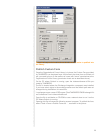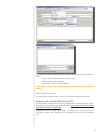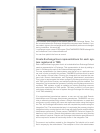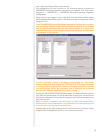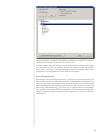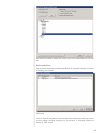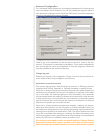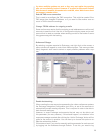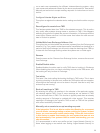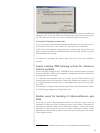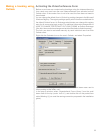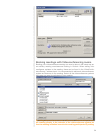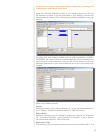
28
Advanced Conguration
The ‘Advanced’ Button allows you to change the password for the tms-service
account created in Active Directory. You can also change the log path, dene e-
mail options for outgoing e-mails, rebuild the TMS server connection and select
options for Asynchronous meeting requests.
Change password for tms-service
Used to set a new password for the tms-service account, used by the syn-
cronizer. This account is created during installation. This must be changed here
and not through AD Users and Computers so that the Integration stored set-
tings are updated as well as Active Directory.
Change log path
Denes the log path of the integration. Please note that the tms-service ac-
count needs to have write privileges to this directory.
Asynchronous meeting request
This controls the behaviour when booking the accounts in Exchange that are
integrated with TMS as ‘Required’ or ‘Optional attendees’ in meeting invites.
When set to ‘Always Decline Asynchronous Requests’ (the default) meeting re-
quests are only processed if the account is booked as a ‘resource’ for the meet-
ing. In this mode, the meeting organizer is told immediately if the resources
can be booked before the meeting is allowed to be saved and invites are sent
to other participants. If the accounts can not be booked, no meeting is saved,
and no invites are sent. Invites that put the account as a ‘Required’ or ‘Optional
Attendee’ are rejected and no invites are sent.
When set to ‘Always process asynchronous requests’, meetings will be proc-
essed even if the account is in the ‘Required’ or ‘Optional Attendee’ elds, but
the meeting will be saved and invites sent by the meeting organizer before the
meeting can be veried to be scheduled by TMS. This allows organizers to use
any of the invite elds when setting up a meeting, but allows the meeting to be
saved and invitations sent to participants even if the meeting is not successfully
booked by TMS (due to availability, resource conicts, etc.).
It is strongly encouraged to retain the default setting of ‘Always Decline
Asynchronous Requests’ because sending invites and saving meetings
before the meeting is validated leads to end user confusion and complex-



